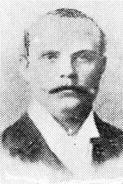
You can bet the house on impressive Anthony Joshua becoming heavyweight champion.
It’s just as well Tyson Fury has a big mouth on him – his boxing skills don’t amount to much.
It’s history that Fury divined a way to upset the monolithic block in the form of Wladimir Klitschko last weekend. As an achievement, it was off the charts. As a fight, my grandma’s knitting had more appeal.
Klitschko has taken tedium to new levels through the years, his safety-first approach effective but utterly boring.
As eminent sports writer Hugh McIlvanney once reminded Joe Bugner, a fighter can look like a Greek statue and have about as many moves.
It explains why almost all the attention is now focused on the middleweights and welterweights, the true thoroughbreds of boxing.
Klitschko had all the tools, notably a ramrod jab, a damaging right cross and enormous size, but he was unable to blend them with excitement. He was always too cautious, too obsessed with self-preservation, to fight with the rage we demand of great champions.
Mike Tyson had it, Evander Holyfield had it and Riddick Bowe had it. When they smelled blood, they savaged their opponents.

Oh for the days of Mike Tyson’s brand of ferocity.
Fury’s best feature is his size and speed, but for a man as large as he is, he is an ordinary puncher. Plus he moves with the stealth of the Titanic.
Not a single person I spoke to enjoyed the fight or expects Fury to herald a new golden age for the heavyweights. All he did was get rid of the boring guy.
This is how the medium-term future will pan out. Because Fury is still new on the block his promoter will squeeze all he can out of the champion. He won’t throw him in against anyone remotely dangerous for his first or second defence. They’ll be stock-standard opponents who will give Fury a few decent rounds and then fall over. This is fine – it’s how boxing works. Champions are entitled to a soft option or two.
But the pressure will soon mount for him to rise above fighting tomato cans. And although the heavyweight division appears in a mess, there is hope.
In a fortnight an unbeaten Briton named Anthony Joshua fights old amateur nemesis Dillian Whyte in the UK. Joshua is big and ripped, but what makes him different to the current crop of super-sized fighters is that he is fluid and boxes with an easy rhythm. The former Olympic gold medalist has spent time in camp with Klitschko, who pronounced him a future heavyweight champion. He would pulverise Fury tomorrow, but the likelihood is he’ll continue to pad his record before a massive showdown in 2017 with Fury, assuming the champion holds onto his belts until then. Wembley with its 90 000 seats could be filled twice over for that one.
There’s also the curious possibility of a fight in the next 12 months against former champion David Haye, who recently announced his return from retirement. Don’t they always?
Haye twice pulled out of fights with Fury and although the new king has blustered about never giving Haye an opportunity, money talks. There’s an inevitability about this one, although the levels of distaste and nonsense the pair spout in the buildup would make the paint peel off the walls.
Across the pond, America has at least one decent heavyweight, which is a long way off the standard of the 1970s and 1980s when the US boasted dozens of world class big men.
Deontay Wilder is a beautifully proportioned heavyweight with lightning reflexes and savage power: 34 KOs in 35 wins. The trouble is he’s largely fought an assortment of road sweepers and easybeats, so no-one knows quite how good he is. He holds the World Boxing Council belt, which was relinquished by Wladimir’s brother Vitali.
Wilder would start favourite against Fury given his superior movement and evident power. It, too, is a fight that will percolate among hard core fans and could do crazy pay-per-view numbers down the line.
Others are hovering, too, like Luis Ortiz, Joseph Parker (who KO’d over-the-hill Fransie Botha), Alexander Povetkin, Ruslan Chagaev, Vyacheslav Glazkov, Erkan Teper and Kubrat Pulev. The talent is there, which gives the heavyweight division hope after the slow-poison rule of Dr Steelhammer. – © Sunday Tribune








